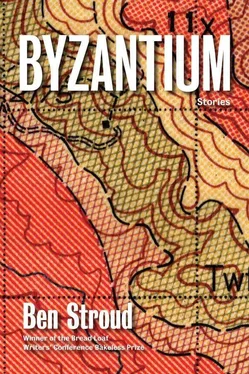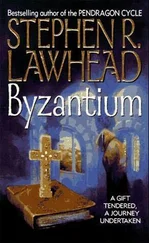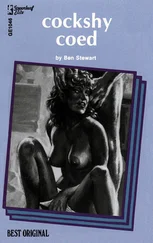“All of Havana eating slave flesh,” the don said. “Horrible!” He sat up, some of the green faded from his face. “But I tell you, I can’t understand why. I’ve thought over the numbers — there couldn’t have been much money in it, not nearly as much as the slaves were worth in the field.”
The ringing had gone, the priests turned around a corner. What he’d seen through the window of the cigarette factory flashed again before Burke’s eyes.
“Don Hernán, who can know the motives of such beasts?”
ONCE THE DON HAD LEFT, Burke called to Fernandita to help him to the window. She held him by the arm, and he pushed aside the curtain and looked out. The sun shone brightly on the harbor ships, ignorant of all that had just passed.
He had been working to save slaves, not trap them, but in the light of the morning his relief had begun to crumble. He’d fashioned excuses, but he’d been willing to hunt Marcita for pay. His mind spun with the thought that he’d become the equal of the men in the factory, that he’d stepped irrevocably away from the goodness he’d once imagined his.
When he turned back from the window, he said to Fernandita, who still held his arm and was smiling uncertainly up at him, “You may tell my next caller that I am taking no more cases.”
The smile vanished. “Don’t be a fool,” Fernandita said. “Not over just the one girl.”
But Burke had learned the truth of his position now. Shaking free of Fernandita’s hand he stepped back toward his cot. “If the caller insists,” he told her, with a glance back toward the masts outside his window, “you may lie and say I am no longer in the city but a lowly crewman at sea.” His legs were still weak, and he was exhausted from his night of work, hollowed and brittled by all he’d seen. At the moment he couldn’t fathom what he was going to do when his money ran out, but he’d decided his work as a detective in Havana was finished, and in that alone he found solace.
I
Enterprise
In March, during the last weeks before the season of fever returned, all Galveston was filled with talk of conquest. A ship carrying a company of filibusteros from the mainland had just sailed for Haiti with plans of empire, and Colonel Timson, a forceful, charismatic fellow who wore a wide-brimmed hat like a planter and swore off all whiskey and cigars, was making the rounds putting together an expedition to topple the government of Honduras and establish a white republic. He had a sharp face reddened by daily shaving, and his tight lips and dark eyes seemed always to be hiding some secret, or perhaps some fury. The man himself was a mystery. I never learned his past, apart from one year he spent as a gin operator in Burwood, Mississippi, nor how he earned his rank, which I came to believe was self-given.
I first caught his attention while passing out handbills for my meat biscuit in the Strand. I spent most mornings in this fashion, stifling my melancholy, awaiting the steamers from Tampico and Veracruz and keeping an eye out for newcomers: I would press the bill into their hands and tell them that a free sample could be obtained at the warehouse. When I stopped Timson in the street, he was attired in a black frock coat faded to gray and worn shiny at the elbows and cuffs. He inspected the bill, then folded it, put it in his coat pocket, and asked if I had a spare hour. He was the first in months to express an interest, so I said I did. We walked about the square and down to the wharves and, without further introduction, he told me of his plans.
“Do you follow Washington?” he asked.
I told him I did not.
“Well, surely men of understanding like yourself know this nation is founded upon the divine harmonies of slave and free. The Northern abolitionists hope to destroy this harmony, and the only way we can stop them is through expanding our institutions.” He unrolled each sentence by rote — they were well worn from much use — and every few words he prodded me with his finger. “I have studied the matter closely and determined Honduras as our first acquisition. We will sow her with slaves and petition for statehood. Some may cower at the thought of such an enterprise, but I foresee little resistance to our tropic campaign.” Here he took off his hat and drew from inside it a folded sheet of paper, which he opened and showed to me: a newspaper illustration of two campesinos dozing next to a burro. “The enemy,” he said. He then refolded the picture, taking care to make no new crease, and stuck it again in his hat, which he returned to his head.
“Of course,” he continued as we strolled, “there will be a brief period during which I shall preside over a provisional republic, and which my backers will find quite remunerative.” Here we paused as several negroes dressed in finery paraded before us, their masters goading them, showing them off to the city’s wealthy gathered on the courthouse lawn. Timson leaned closer and whispered. “I have been in contact with agents of President Pierce. They have given me assurances.”
We parted, agreeing to meet at some later time. I confess my motives were selfish. I never became a true acolyte of Timson’s; I did not believe that the addition of Honduras to our Union, or any amount of new slave states, could head off the reckoning that yet awaits our nation, and to this day every time I hear of a negro lashed or beaten I find myself drawn one inch closer to the abolitionist camp. But Timson could prove the biscuit, I felt, and this I wanted more than anything.
Returning to the Strand, I was accosted by two ruddy-nosed drunks, their mouths curled into devilish grins as they grabbed at my handbills and bellowed, “A sample, Dr. Toad, a sample!” The nickname grew from a rumor about my ingredients, and such treatment was in the normal course of things. But it was not always so. Three years ago the biscuit was birthed into the world with great hope and fanfare. As with all my inventions, my motivation was the alleviation of suffering. To make the biscuit I boiled beef, reducing it from eleven pounds to one, and combined the resulting extract with flour, which I then baked, creating an incorruptible and easily transportable nugget of nourishment. With it, ships at sea would have no worry for starvation, and missionaries and soldiers cut off from supplies would have all the benefit of a full meal in a single bite. Dr. Asa Smith was my partner. He had lodged in my back room for two months when he first arrived in the city, and I had held him in friendship ever since, allowing him to treat cholera patients in my parlor during the occasional epidemic. Though it was his habit to oppose my contrivances, he saw the biscuit’s merit and gave over half his small fortune for its support, and together we showed the biscuit at the Great Exhibition in London and sent canisters of it to Arctic explorers and British troops in the Crimea. Everywhere it was met with enthusiastic praise, and on our return to Galveston we manufactured thousands of pounds more.
And then all orders dropped. A committee of army officers in Washington complained of the flavor. Flavor! I made no claims of flavor, only sustenance. Indeed, it is my true belief that a cabal of meat purveyors bribed the committee, for they stood to lose everything to my biscuit. Whatever the cause, it was only the last failure in a long list, ranging from the terraqueous machine to the potato pill and bone bread.
After the committee’s report, Dr. Smith and I were left with a warehouse full of meat biscuit, twenty thousand pounds packed in barrels, canisters, and bottles. Often we made our nightly meals upon it — I prepared the biscuit in diverse ways, sometimes in puddings, sometimes in broths, sometimes in pies, sometimes simply toasted. Even so, this was more than Dr. Smith and I could eat on our own were we given until Armageddon.
Читать дальше











